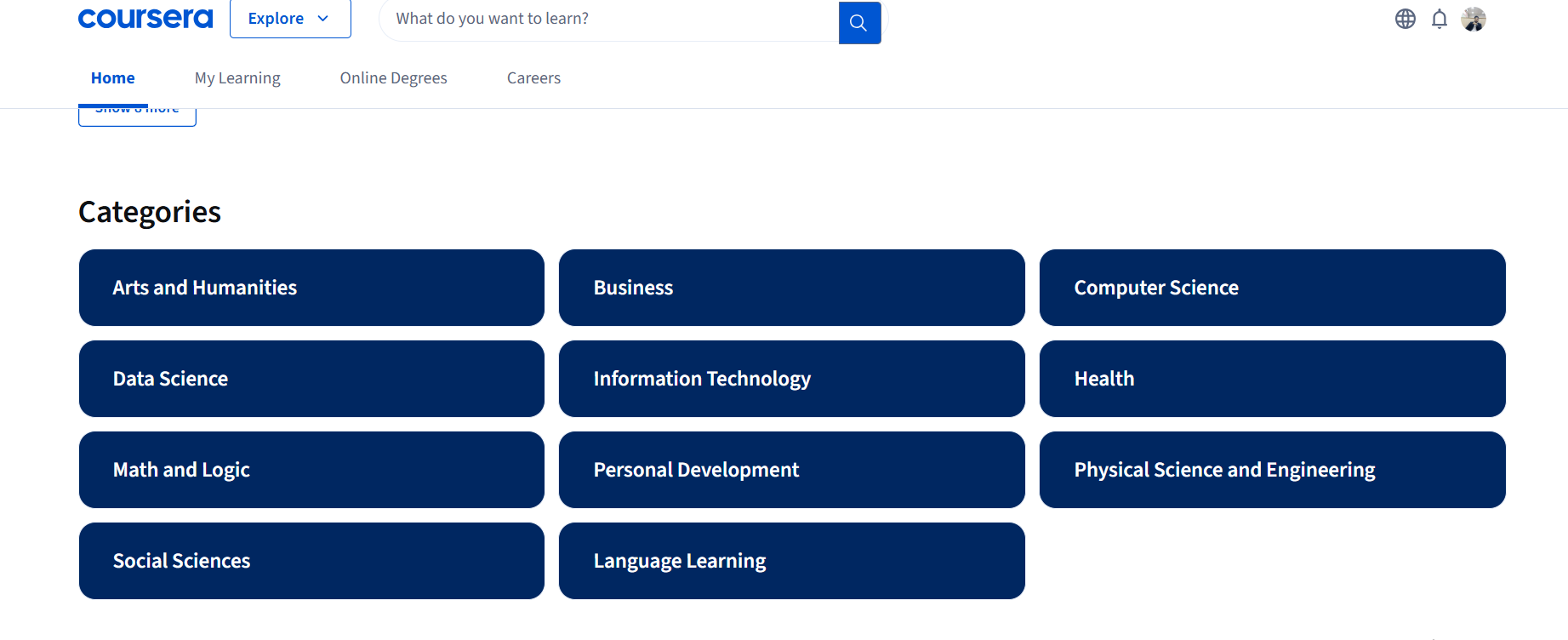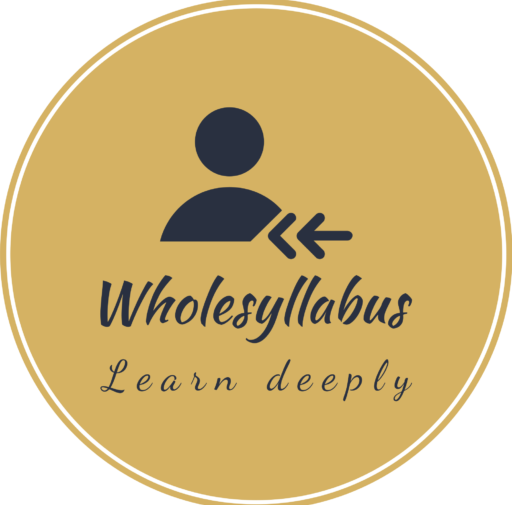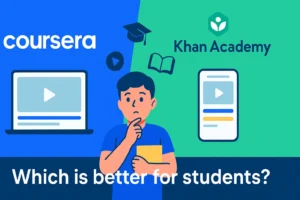Students (and parents) usually compare Coursera and Khan Academy because both are trusted names in online learning, but they serve very different needs.
Here’s the thing — online education has exploded in the last few years. From AP prep to career skills, students are no longer relying only on classroom lessons. Platforms like Coursera and Khan Academy now feel almost essential, especially for high schoolers trying to ace exams or college students chasing an internship edge.
I’ve seen this debate pop up countless times on Reddit and Quora threads:
- “Is Coursera worth paying for?”
- “Can I prep for SATs with just Khan?”
- “Which one actually helps with college applications?”
Quick recap:
- Coursera → structured, certificate-based, career-focused.
- Khan Academy → free, mastery-driven, perfect for AP/SAT prep.
This guide goes deeper than just features. I’ll walk you through real comparisons, personal experiences, and even when it makes sense to use both together.
Coursera vs. Khan Academy at a Glance (Quick Comparison Table)
Here’s the fast breakdown — pricing, subjects, audience, and what each platform is best for.
| Feature | Coursera | Khan Academy |
|---|---|---|
| Pricing | Free courses + $59–$399 per certificate | 100% free |
| Audience | High school, college, career learners | K–12, AP/SAT prep |
| Course Variety | Data Science, Business, Humanities, Tech | Math-heavy, AP, SAT |
| Certificates | Yes (Yale, Google, Stanford) | None |
| Best For | College readiness, resumes, jobs | School support & test prep |
👉 Try Coursera student programs here
What is Coursera? (2025 Snapshot for Students)

Coursera is an online learning platform that connects students with courses from top universities and companies, offering certificates that actually carry weight on college applications and resumes.
Unlike sites with only practice drills, Coursera feels closer to a real class. Most courses come with structured modules, quizzes, and sometimes peer-reviewed projects. That’s why it’s often recommended in our full Coursera for Students Guide — because it’s not just about learning, it’s about showing proof of what you learned.
Best fits for students in 2025:
- High schoolers → AP-level mastery (think AP Biology, Statistics, or Computer Science foundations).
- College students → Career certificates that boost internships and early job applications.
- Career learners → Professional skills from partners like Google, IBM, and Yale.
💡 I’ve come across multiple stories on r/college where students said Coursera certificates made their applications stand out. One student even mentioned taking “Intro to Python” while still in high school — that course later helped them secure a summer coding internship.
👉 If you’re curious which courses are worth the time, I put together a list of the Best Coursera Courses for Students that’s a solid place to start.
What is Khan Academy? (Free K–12 Learning Resource)
Short Answer: Khan Academy is a nonprofit platform that focuses on free, mastery-based learning. It’s especially strong for math, science, and standardized test prep like the AP exams and SAT.
What sets Khan apart isn’t just that it’s free — it’s how the practice is structured. Students can repeat drills until they master a concept, making it one of the most reliable companions for AP test season. In fact, Khan is the official SAT partner of the College Board, which gives it a level of credibility most free platforms don’t have.
Best fits for Khan Academy:
- Middle & high schoolers building math/science foundations.
- AP students who need consistent practice and free prep.
- SAT takers looking for structured, high-quality drills.
If you’re mapping out your test prep timeline, check the AP Exam Schedule to see where Khan’s resources can fit in. And if you’re wondering how paid courses compare, here’s a deep dive into AP exam prep on Coursera vs. free Khan Academy practice.
Personal note: My cousin relied heavily on Khan Academy’s AP Calculus drills, and honestly, it helped push his score from a shaky 3 to a confident 4. That’s where Khan shines — targeted, repeatable practice for students who need the extra reps.
Head-to-Head Comparison – Coursera vs. Khan Academy
Short Answer: Coursera is structured and credential-based, while Khan Academy is flexible, practice-driven, and always free.
Here’s where the two platforms really separate:
Course Variety & Subjects
If you’re comparing them by course catalog, Coursera clearly has more depth. It offers university-level subjects in Data Science, Humanities, Business, Computer Science, and even courses that align with AP content. Many students use Coursera to go beyond what’s offered in school — for example, taking a Python class while preparing for AP Computer Science.
Khan Academy, on the other hand, focuses more narrowly on math, science, and test prep. It’s legendary for AP Calculus and SAT practice, with mastery-based drills that let you repeat until you nail it. On Quora, whenever someone asks “What’s the best site for AP Calc practice?” Khan gets mentioned every single time.
Related guides for AP-minded students:
Learning Style & Flexibility
This is where personality plays a role.
- Coursera → Structured with weekly deadlines, assignments, and projects. Perfect if you like accountability.
- Khan Academy → 100% self-paced. You can rewatch, retry, and pause anytime without pressure.
If you’re the type who needs reminders and grades to stay motivated, Coursera helps. If you prefer independent learning with no deadlines, Khan is better.
Certification & Recognition
This is one of the clearest differences.
- Coursera → Offers certificates backed by Yale, Google, Stanford, and more. These actually show up on resumes, LinkedIn, and even college applications. Many high schoolers use them to stand out in competitive applications.
- Khan Academy → Focused purely on learning. No certificates, just mastery points.
👉 If you’re looking to add something concrete to your college app or resume, Coursera wins here. And if cost is a concern, you don’t have to skip it — check out the Coursera Financial Aid Application guide to learn how students get access for free.
Pricing & Accessibility
- Coursera → Paid model (subscription or per-course), but often offers financial aid and free trials.
- Khan Academy → Always free, nonprofit, and ad-free.
For budget-conscious students, Khan is unbeatable. But Coursera can be surprisingly affordable if you know where to look for aid.
Which is Better for Students? (Use Cases)
Short Answer: The “better” choice depends on who you are — a high school student prepping for APs and the SAT, a college student building career skills, or someone learning on a tight budget.
High School Students (AP & SAT Prep)
If you’re in high school, the biggest question is usually: “How do I balance AP exams and SAT prep without burning out?”
- Khan Academy → It’s the official SAT prep partner with the College Board, so you’re literally practicing from the same style of questions you’ll see on test day. Their AP resources (Calc, Physics, etc.) are also great for extra practice.
- Coursera → If you want more than practice — say, digging into AP Biology labs or structured stats lessons — Coursera has AP-aligned university courses that go deeper.
If you’re self-studying for an AP, check out my AP Self-Study Score 5 Guide and my breakdown of the Easiest AP Classes. Use Khan for drills, Coursera when you need structured mastery.
College Students (Skill Building & Career Prep)
This is where Coursera pulls ahead. Most college students aren’t looking for “more SAT prep” — they’re looking for internships, job skills, or ways to stand out.
- Coursera → Certificates from Google, Yale, or IBM carry weight. On Reddit’s r/cscareerquestions, I’ve seen countless students recommend Coursera’s Google IT Certificate as a first step into tech or data. It’s not magic, but it’s a resume booster that Khan just doesn’t offer.
- Khan Academy → Still useful if you need to brush up on math or revisit high school concepts, but that’s about it.
Related: If you’re balancing work and school, here’s my guide on the Best Online Colleges for Working Adults. You may also want to read my deep dive on Online Education in 2025 to see how Coursera fits into the bigger picture.
Budget-Conscious Learners
Money is often the dealbreaker.
- Khan Academy → Free forever, no ads, no hidden costs. For someone purely focused on saving, this is unbeatable.
- Coursera → Yes, there’s a cost, but don’t overlook financial aid. Many students get full access to $300+ courses for free if they apply. And if you’re strategic, you can stack free trials with scholarships to cover an entire semester of learning.
My Take: If I were in high school today, I’d lean on Khan Academy for AP/SAT drills but mix in a Coursera course or two where it counts (like Python or Bio). By college, though, Coursera becomes the clear upgrade — especially if your resume needs something extra.
Pros & Cons of Coursera vs. Khan Academy
Short Answer: Khan Academy wins on free prep and accessibility, while Coursera shines with certificates and career-oriented learning.
| Coursera | Khan Academy | |
|---|---|---|
| Pros | • Certificates from top universities (Yale, Google, Stanford) • Wide subject variety: tech, business, humanities, AP-level • Strong value for college apps and internships | • 100% free, nonprofit mission • Excellent for math, science, AP & SAT prep • Simple, mastery-based design |
| Cons | • Subscription or per-course fees ($59–$399) • Can feel overwhelming with too many choices | • No certificates or formal recognition • Limited advanced/career-focused courses |
👉 See if Coursera has a free trial in your subject area
FAQs About Coursera vs. Khan Academy
Is Coursera better than Khan Academy?
Not always. Coursera is better for certificates and careers, Khan is better for free K–12 and test prep.
Can I get a job with Coursera certificates?
Yes, especially with career-focused certificates (like Google IT or Data Analytics). They’re recognized by employers.
Is Khan Academy good for college students?
It can help review fundamentals, but most college learners outgrow it.
Does Coursera offer financial aid?
Yes — you can apply for free access to paid courses. Here’s how.
Which One Should You Choose?
Short Answer: Go with Khan Academy if you want no-cost K–12 practice or SAT/AP prep. Choose Coursera if you need structured courses, certificates, or career skills. Honestly, most students benefit from using both at different points.
My honest take:
If I could rewind to my high school days, I’d lean on Khan Academy every single night for math drills — it’s free, simple, and you can repeat lessons until it finally clicks. That kind of foundation makes a huge difference in AP exams.
Fast-forward to college and career prep? That’s where Coursera actually matters. The certificates aren’t just “nice extras” — they show up on resumes, LinkedIn, and even impress internship recruiters. I’ve seen it happen.
So the real verdict isn’t Coursera versus Khan Academy. It’s more like:
- Khan → daily practice, exam prep, zero cost
- Coursera → real credentials, career boost, advanced subjects
👉 Start with Coursera’s student-friendly courses here and see how it fits your goals.

Nawab, an educator teaching K-12 since 2010, holds an English honors graduate degree and a diploma in elementary education. He has also been blogging for five years, sharing insights for educators and parents.

